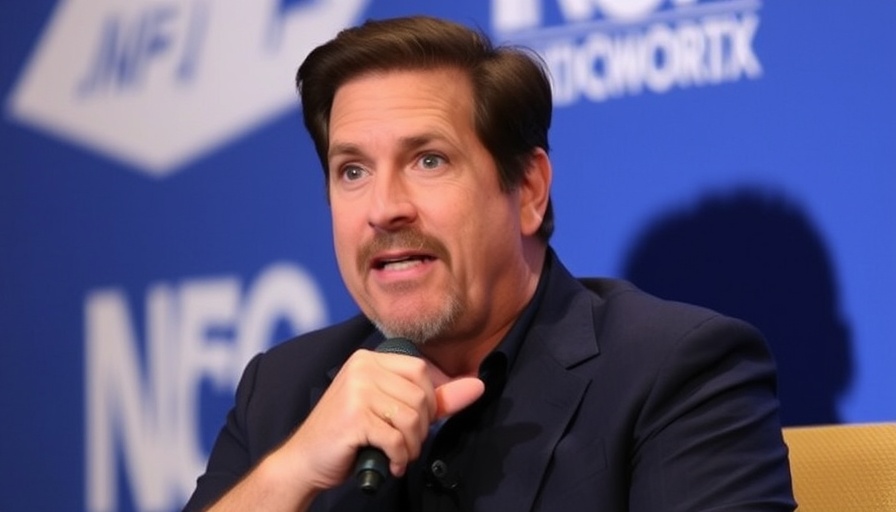
The Unforgiving Reality of Medical Debt
Mark Cuban recently sparked conversation when he pulled no punches in describing U.S. healthcare costs as "horrific." This sentiment rings true for approximately 1 in 5 Americans who find themselves grappling with medical debt. The numbers tell a bleak story: as essential healthcare expenses soar, families are increasingly thrust into a financial quagmire that undermines not just their financial wellness but also their mental and physical health. With inflation driving up medical supply costs and hospital charges, even standard procedures can become financially disastrous.
Take Swift Action: Don't Delay!
Addressing medical bills should be a priority the moment they land in your mailbox. Mark Cuban underlines the importance of prompt action, noting that once a bill is overdue by 180 days, you risk escalating penalties like collections—an unfortunate fate that can mar your credit report for years. Early intervention yields leverage during negotiations; hospitals are generally more amenable to accommodating patients who demonstrate a proactive stance towards their financial obligations. Start a dialogue with your healthcare provider’s billing department, even if you aren’t ready to pay yet. This initial contact helps build a paper trail illustrating your commitment to resolving the debt.
Uncover Hidden Errors: Verify Your Bills
One smart move is to thoroughly verify your medical bills for any inaccuracies. It may surprise you that studies estimate up to 80% of hospitals bills contain billing errors! After receiving your bill, it’s advisable to request an itemized statement. Upon reviewing it, look for duplicate charges, unreceived services, or denied insurance coverages. If discrepancies emerge, document them rigorously and be ready to dispute them with evidence back to the billing department. Your diligence could lead to substantial savings and less financial stress in the end.
Negotiation is Key: Talk Directly to Providers
Most individuals may not realize that they hold significant power in negotiating their medical bills. Contrary to common belief, many hospitals have leeway to modify charges when approached thoughtfully. Establishing interest-free payment plans directly with your healthcare providers can be a far better option than relying on high-interest credit cards. Many facilities are willing to work with patients to create manageable monthly payment arrangements, reflecting their commitment to patient wellness.
The Ripple Effect: Strategies for Financial Wellness
Crushing your medical debt begins with understanding its wider implications on your personal finances. Effective debt reduction is a holistic endeavor that intersects with budgeting, tracking expenses, and planning for future financial goals. For example, tightening your budget may allow you to direct extra funds toward your medical debts—bringing hope for a more secure financial future. This approach not only serves to relieve the pressure from impending healthcare bills but also fosters a healthier relationship with your finances.
Future Financial Planning: Protecting Yourself
While managing medical debt is crucial, building a robust financial future by planning for retirement is equally important. As you develop your strategy for overcoming medical expenses, consider how you will sustain savings for other large expenses, such as housing or education. It may seem overwhelming, but small adjustments in income tracking or budgeting can create big shifts over time.
The Emotions Behind Medical Debt
Medical debt is not just a financial issue; it carries emotional weight that can disrupt overall well-being. The stress of looming bills can lead to anxiety and even deter individuals from seeking necessary healthcare. Recognizing this human aspect is vital as we navigate these turbulent waters of medical costs.
Common Misconceptions: Shedding Light on Medical Debt
Finally, let's address some misconceptions. Many people believe healthcare providers will turn a blind eye to unpaid bills. However, in reality, most providers prefer to collaborate with patients rather than chase after them. Understanding this can compel individuals to take swift and informed action when facing medical expenses.
As healthcare costs continue to strain the average American household, it’s essential to take proactive measures to manage debts effectively. By following these practical strategies and remaining aware of your rights as a patient, you can navigate your medical debt more successfully than you might have thought possible.
Discover how you can further boost your financial wellness by exploring tailored options that meet your needs. Start today for a stress-free financial future!
 Add Row
Add Row  Add
Add 




 Add Row
Add Row 


 Add
Add
Write A Comment